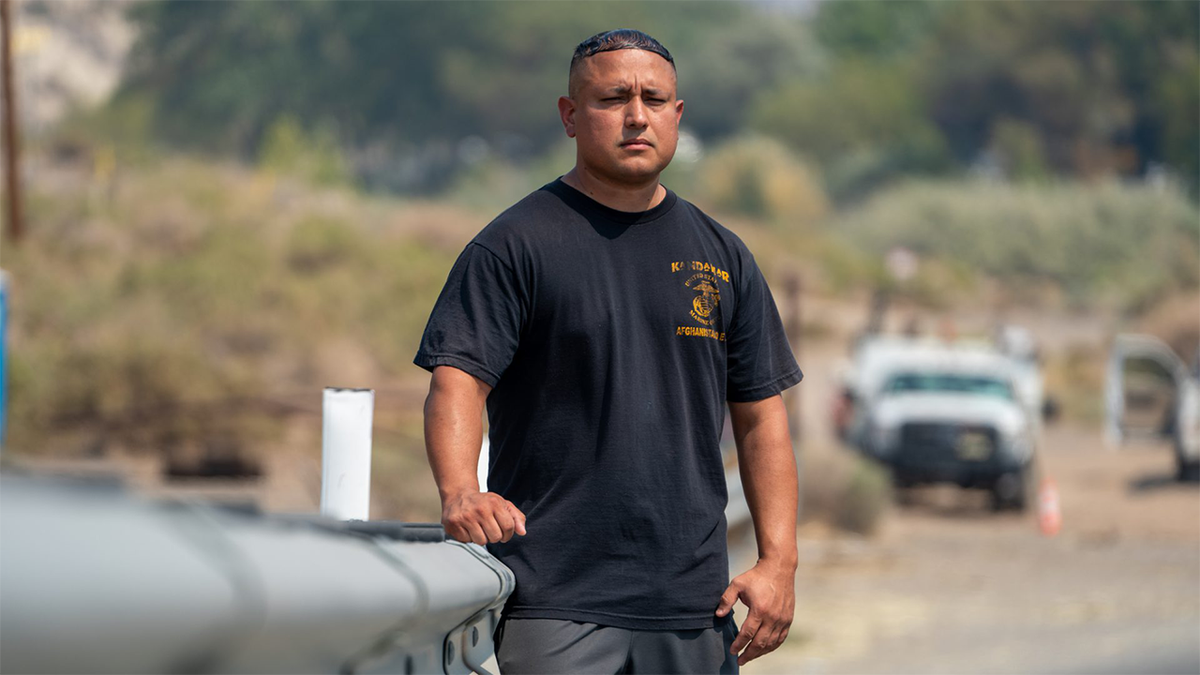After police seized Marine vet's life savings, ruling brings him closer to saving others from civil forfeiture
Former Marine Stephen Lara had his $87,000 in life savings seized by Nevada Highway Police three years ago. Now, he is fighting to protect others from the same fate.
Stephen Lara was driving cross-country to see his daughters in California when a seemingly routine traffic stop ended with the Nevada Highway Patrol seizing his entire life savings of $87,000.
"I knew at that moment that wasn't the place to fight this battle," Lara, a 42-year-old Marine veteran, told Fox News. "I had to stay calm."
It took Lara seven months to get his money back from the government, but his fight to prevent law enforcement agencies from getting kickbacks for seizing suspected but untried Americans' property remains ongoing.
After nearly three years, a new ruling denying Nevada's motion to dismiss his case brought new life to Lara's battle for vindication.
"This is absolutely atrocious for our county, local, state and federal governments to be colluding with each other on taking assets from the very people that they're supposed to be serving," Lara said. "I've already got my money back, but that does not solve the problem."
"I fully intend on seeing this through until we succeed and we're victorious," he added.
WATCH MORE FOX NEWS DIGITAL ORIGINALS HERE
Lara left the Marine Corps in 2016 after 16 years of service, which included tours in Iraq and Afghanistan. During the pandemic, Lara moved in with his elderly parents in Lubbock, Texas, but drove for four days each month to see his two teenage daughters who lived with his ex-wife in a small California town outside Reno, Nevada.
In February 2021, he had about an hour left on his drive when the Nevada Highway Patrol pulled Lara over, saying he drove too close to a vehicle in front of him, body camera footage showed.
The officer is seen applauding Lara on his safe driving before asking him to step out of his vehicle and start questioning him.
"He pulled me over for driving too close to a truck and the next thing you know, I'm being pulled out of the car, and they're going through my personal belongings and asking me a ton of questions — if I had any bodies in the car or any drugs, any anything illegal," Lara said. "And I'm thinking to myself, ‘What is going on here?’"
THE FBI TOOK HER LIFE SAVINGS. NOW SHE’S FIGHTING TO HELP OTHERS GET THEIRS BACK
Lara told the police he had money in his car, telling them "I don’t trust banks, so I keep my own money." He let them search his vehicle where they found the $87,000 along with bank receipts and paystubs.
After further questioning and searching, the police told Lara a drug-sniffing dog detected something on the cash, and they suspected it was tied to drug crimes. Officers informed Lara they were seizing his money and handing it over to the Drug Enforcement Administration (DEA) using civil asset forfeiture, which allows the government to seize and keep property it suspects is connected to criminal activity.
Lara said he felt "a combination of confusion and anger" as the situation escalated, "but at the same time, I knew I had to stay calm and collected."
The FBI has said forfeiture is an important tool for "disrupting and dismantling criminal and terrorist organizations and punishing criminals" as well as "compensating victims and protecting communities."
"Forfeiture can also serve as a deterrent to others who might be considering criminal activities," the FBI wrote in 2017.

Marine veteran Stephen Lara is taking legal action against the Nevada Highway Patrol after his $87,000 nest egg was seized using civil forfeiture's equitable sharing practice. (Insititute for Justice)
'LEGAL THEFT': TEXAS POLICE SEIZED MAN'S LIFE SAVINGS. NOW THE STATE IS PUTTING HIS CASH ON TRIAL
While Nevada is one of many states that have limitations on civil forfeiture, requiring clear and convincing evidence that property is connected to a crime for it to be forfeited to the government, a program called "equitable sharing" allows state and local law enforcement to partner with federal agencies on forfeitures.
In those instances, restrictions can be evaded. After federal officials seize the property, they can return up to 80% of the proceeds to the state agency.
About an hour after being pulled over, Lara’s entire life savings were taken from him. He was left on the side of the road without enough money to pay for gas. He was not charged with a crime.
"I'm thinking, these guys couldn't have pulled over a worse person because I'm not going to back down from this," Lara told Fox News. "I knew I was going to get my money back. It was just a matter of how."
The DEA missed deadlines required by state law to either charge Lara with a crime, begin a civil forfeiture case against his property or return the money within six months of seizure.
After six months, Lara teamed up with the Institute for Justice and sued the Nevada Highway Patrol over the seizure and filed a court motion asking the DEA to give him his money back. The DEA agreed to return Lara’s money the following day, according to the Institute for Justice.
"Steven lost his life savings for the better part of a year while the government simply held on to it, and he had to file a lawsuit to get it back since they didn't have any evidence of a crime," Institute for Justice attorney Ben Field told Fox News. "But for most people, they just don't have the resources to do that."
"The government relies on people not asserting their constitutional rights so that it can keep the money," he added.
Lara maintained his lawsuit against the Nevada Highway Patrol, arguing his rights under the Nevada Constitution were violated, and is seeking compensation for damages, a declaration that the seizure lacked probable cause and a restraining order barring the NHP’s use of equitable sharing.
"Mr. Lara wants a declaration from the court saying that Nevada law enforcement has to respect the Nevada Constitution, and they can't go around the protections of Nevada law simply by giving the money over to the federal government," Field said.
CLICK HERE TO GET THE FOX NEWS APP
The case was stayed in March after the state filed a motion to dismiss, but last Thursday, the Second Judicial District Court for the State of Nevada denied the motion.
"The government was arguing there's simply no way for somebody like Mr. Lara to seek to vindicate his rights in court," Field said. "And the court said, ‘No, that's wrong.’"
Lara said he "fully expects to succeed" as the case resumes and moves toward a trial, but as a result of this experience he has "lost full faith and confidence in law enforcement,"
"It was the very government I would have laid my life down for that was trying to take my money," he told Fox News. "They tried to take my livelihood away from my children and I, and that does something to you."
Neither the DEA nor the Nevada Highway Patrol returned requests for comment.





